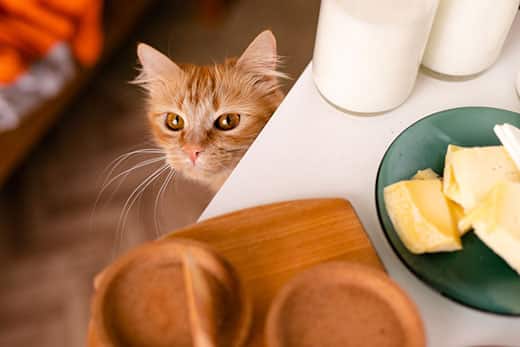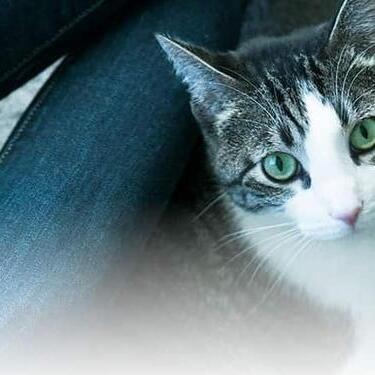
-
Find the right food for your pet
Take this quiz to see which food may be the best for your furry friend.
Find the right food for your pet
Take this quiz to see which food may be the best for your furry friend.
Featured products
 Small & Mini Savory Stew with Chicken & Vegetables Dog Food
Small & Mini Savory Stew with Chicken & Vegetables Dog FoodA delicious complement to the nutrition of Science Diet Small & Mini 7+ dog food
Shop Now Adult 7+ Perfect Digestion Chicken, Whole Oats & Brown Rice Recipe Dog Food
Adult 7+ Perfect Digestion Chicken, Whole Oats & Brown Rice Recipe Dog FoodScience Diet's breakthrough nutrition supports ultimate digestive well-being & healthy microbiome for dogs age 7+
Shop Now Adult Healthy Cuisine Roasted Chicken, Carrots & Spinach Stew Dog Food
Adult Healthy Cuisine Roasted Chicken, Carrots & Spinach Stew Dog FoodDelicious roasted chicken paired with tender vegetables in a succulent stew
Shop NowFeatured products
 Adult Savory Entrée Can Variety Pack Cat Food
Adult Savory Entrée Can Variety Pack Cat FoodPrecisely balanced nutrition with the delicious taste of savory minced chicken to help fuel the energy needs of cats during the prime of their life
Shop Now Adult 7+ Tender Tuna Dinner Cat Food
Adult 7+ Tender Tuna Dinner Cat FoodWith delicious chunks in a decadent gravy
Shop Now Adult 7+ Senior Vitality Chicken & Vegetable Stew Cat Food
Adult 7+ Senior Vitality Chicken & Vegetable Stew Cat FoodImproves Everyday Ability to Get Up & Go
Shop Now -
Dog
- Dog Tips & Articles
-
Health Category
- Weight
- Food & Environmental Sensitivities
- Urinary
- Digestive
- Joint
- Kidney
-
Life Stage
- Puppy Nutrition
- Adult Nutrition
- Senior Nutrition
Cat
- Cat Tips & Articles
-
Health Category
- Weight
- Skin & Food Sensitivities
- Urinary
- Digestive
- Kidney
-
Life Stage
- Kitten Nutrition
- Adult Nutrition
Featured articles
 Does My Pet Hate Me?
Does My Pet Hate Me?Learn tips for bonding with your pet if you've ever thought, 'My dog doesn't like me, or 'Why do I have a standoffish cat?'
Read More Do Dogs and Cats have Belly Buttons?
Do Dogs and Cats have Belly Buttons?Learn whether cats & dogs have belly buttons like humans, what the function is, and if there are any health concerns associated with it.
Read More Why Are Dogs and Cats So Cute?
Why Are Dogs and Cats So Cute?If waggy puppy dog tails and furry kitten yawns make you swoon, you're not alone. Why are cats so cute? And, dogs too! Let's find out!
Read More -


The slight crinkle of a cheese wrapper can send cats flying into the kitchen in search of the salty treat, but can cats eat cheese? Here's the scoop on whether cats and cheese are a good combination.
Cats and Cheese: Is It OK?
Can cats eat cheese? According to experts, yes — but only in moderation. If you give your cat cheese at all, just give them a small piece once in a while, about the size of a dice. For example, you might opt to limit your kitty's cheese intake to times when you need to hide a pill for them.
But, while many cats can tolerate small portions of cheese, if your kitty is lactose intolerant or has a milk allergy, even a small amount of cheese could wreak havoc on their digestive system.
Dairy Intolerance and Dairy Allergy in Cats
Despite the long-standing myth that cats love nothing better than a bowl of milk or cream, most cats can't digest dairy. The Cornell University College of Veterinary Medicine emphasizes that many cats are lactose intolerant and can experience gastrointestinal problems, including inflammation, diarrhea, constipation and vomiting, if they consume dairy.
Cats with a dairy allergy may also react poorly to even a small bite of cheese. (Generally, cats don't have a lot of food allergies, but dairy, as well as fish and red meat, are the more common ones.) Like kitties with lactose intolerance, if your cat has a dairy allergy, eating cheese could lead to digestive issues and might even affect their immune system.
Common signs your cat has a dairy allergy include the following after consuming lactose products:
- Vomiting
- Diarrhea
- Gas
- Itchy and/or red skin patches
- Hair loss
If your cat shows these or any other unusual signs, contact their veterinarian as soon as possible to schedule a check-up.
When Cheese Is a No-No
According to the Cummings Veterinary Medical Center at Tufts University, you should avoid giving your cat cheese if they need to lower their salt intake and/or if they have a heart condition. In addition to cheese, if your kitty is on a low-sodium meal plan they should absolutely stay away from deli meat, fast food, potato chips and bread.


Tasty Tips
Focus on Calories

No more than 8 to 10 percent of a pet's daily calorie allotment should come from treats or food that wasn't recommended by a veterinarian. Cheese, for example, is a popular human food that can be way too high in calories. In fact, giving a 1-ounce cube of cheddar cheese to a 10-pound cat is equal to a person scarfing two and a half cheeseburgers, all at once.
The best approach for cat parents? Avoid the extra snacks and substitute extra love instead.
Types of Cheese: Good vs. The Bad
If you do sneak your cat a cheesy treat, certain varieties may be better than others:
- Cheddar: One of the most popular cheeses around, cheddar is a semi-hard cheese that doesn't contain much lactose. This doesn't mean, however, that your cat should eat large amounts of cheddar, as it can cause tummy troubles.
- Swiss: A favorite among sandwich lovers, Swiss cheese is considered a healthy cheese for humans because it's high in protein and low in sodium and fat. Like cheddar, it has low amounts of lactose, but it can still lead to digestive issues.
- Mozzarella: Plenty of pet parents have caught their feline friends sneaking into the pizza box, but is all that gooey cheese good for your cat? Not so much. Soft cheeses like mozzarella, whether raw or cooked, are health hazards for cats because they are high in lactose. Cottage cheese and cream cheese pose similar risks and should be avoided.
- Brie: A popular soft cheese, brie is made with raw milk, which may contain Salmonella and Listeria, pathogens that cause serious illness. Other raw soft cheeses to avoid are blue cheese and Camembert.
- Blue cheese: Know what makes cheese blue? Mold. This type of cheese, including Stilton, is made with cultures of the mold Penicillium, which can be toxic to pets. For this reason, don't feed your cat moldy cheeses.
Say Cheese
Feeding your cat a bit of cheese here and there shouldn't be a problem, but speak to your cat's vet about whether or not it's a healthy option for your kitty. If you do feed your cat cheese, only give it to them once in a while and in small amounts. That'll give them something to smile about!


Christine O'Brien is a writer, mom, and long-time cat parent whose two Russian Blues rule the house. Her work also appears in Care.com, What to Expect, and Fit Pregnancy, where she writes about pets, pregnancy, and family life. Find and follow her on Instagram and Twitter @brovelliobrien.
Related products

Improves Everyday Ability to Get Up & Go

Supports energy level and beautiful fur in mature cats

With delicious chunks in a decadent gravy

Precisely balanced nutrition with the delicious taste of savory minced chicken to help fuel the energy needs of cats during the prime of their life
Related articles

Brushing your cat's teeth is just as important as brushing your own. Learn signs or oral health problems in your cat and how to avoid them.

Discover which cat toys games your feline friend might like, and how they are great sources of exercise. Explore our library of articles to learn more.

Discover how to identify cat sensitive skin and what you can do to help your cat thrive from head to paw.

Discover the benefits of Hill's line of kitten foods and how they provide complete and balance nutrition for growing kittens.

Put your cat on a diet without them knowing
Our low calorie formula helps you control your cat's weight. It's packed with high-quality protein for building lean muscles, and made with purposeful ingredients for a flavorful, nutritious meal. Clinically proven antioxidants, Vitamin C+E, help promote a healthy immune system.
Put your cat on a diet without them knowing
Our low calorie formula helps you control your cat's weight. It's packed with high-quality protein for building lean muscles, and made with purposeful ingredients for a flavorful, nutritious meal. Clinically proven antioxidants, Vitamin C+E, help promote a healthy immune system.

